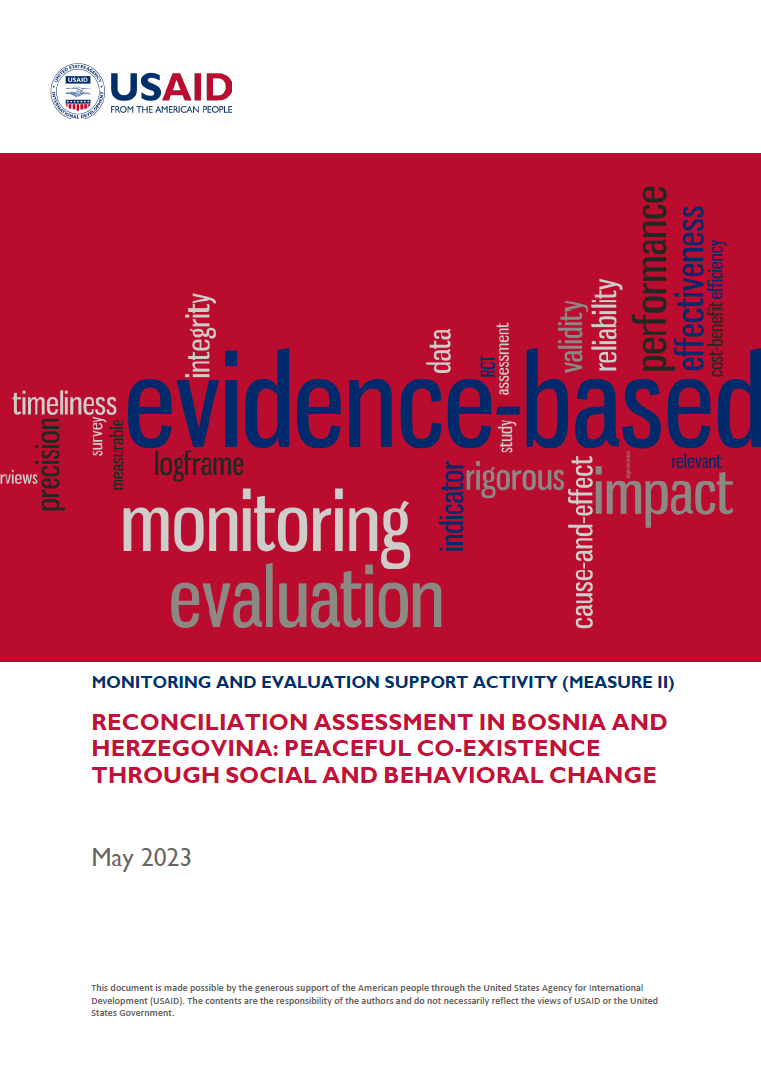
Reconciliation Assessment in BiH
|
The purpose of the assessment was to formulate recommendations on how best to address mistrust between the main ethnic groups in BiH caused by the 1990s war and consequent grievances, exacerbated by divisive political rhetoric. The assessment investigated the underlying sources and drivers of interethnic division and identified the actors and tools with the potential to contribute to bringing divided groups closer together. The reconciliation assessment was conducted between July and November 2022. The assessment team used a mixed-methods approach and triangulation of quantitative and qualitative data to address the assessment questions. The team conducted a literature review, 55 key informant interviews (KIIs) with a variety of stakeholders (donors, international organizations, politicians, religious leaders, media, local civil society organizations [CSOs]), and 20 focus groups (FGs) with citizens. The team also analyzed data from the National Survey of Citizens’ Perceptions in Bosnia and Herzegovina (NSCP-BiH) and the National Youth Survey (NYS-BiH). Key informants (KIs) interviewed for this assessment held opposing views about the country’s progress in terms of improving interethnic relations and reconciliation. Most KIs believe that interethnic contacts and cooperation at the local level have increased, especially between young people, but few think the situation has improved in terms of resolving the sources of division, acknowledging war crimes toward the outgroups, or forgiving the outgroup members. Political rhetoric has worsened and become more divisive than it was five years ago.
|





